

REACH Mali Suivi de la situation humanitaire dans la zone frontalière, Grille de saturation sur les localités de Daguima région de Mopti, Kain (province du Yatenga) région du Nord Burkina, Tamakoutate région de Gao (05-28 janvier 2022)
XLSX47.2K
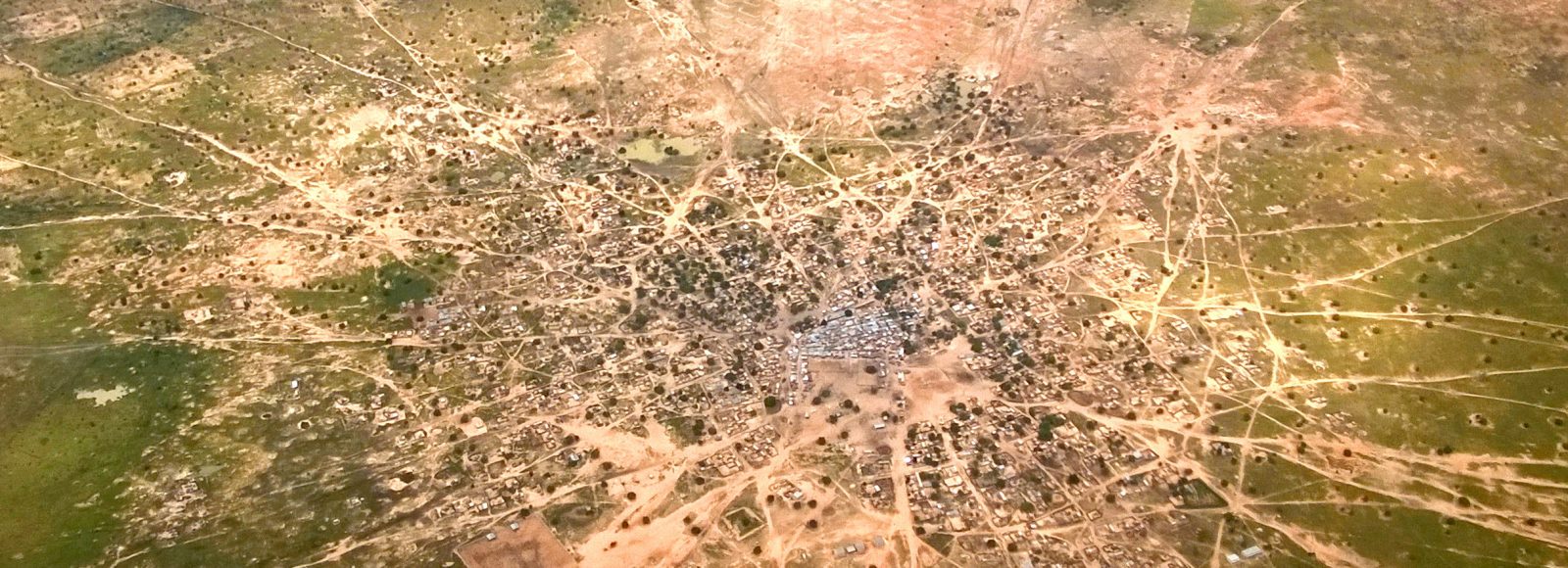
Since 2012, Niger has been characterized by several – at times overlapping – crises. Structurally underdeveloped with the world’s highest birth rate per woman, the country has been heavily impacted by conflict and population displacement on its borders with Mali, Burkina Faso, Nigeria, and Chad.
The combination of instability and structural barriers has strained an already fragile humanitarian situation, and the country remains prone to severe food crises resulting in food insecurity and malnutrition. Moreover, at the frontline of climate change, Niger has also been facing frequent heavy rainfall and flooding, provoking massive displacements in several areas of the country and impacting farming production.
In addition to natural hazards, the rapid demographic growth coupled with increased land silting in the southern part of Niger has increased conflicts around land access between herders and farmers, especially in southern Niger.
IMPACT was first deployed to Niger in 2012 when worsening violence in the north of Mali led Malian refugees and Nigerien IDPs to flee to the Tillaberi region in western Niger. Through its REACH initiative and in close cooperation with UNHCR, IMPACT launched mapping programs in the three camps hosting displaced populations. Subsequently, REACH operations expanded to the south-eastern Diffa region. In addition, REACH has conducted assessments on migrants transiting through Niger towards North Africa and Europe. IMPACT has also played a key role in the Rapid Response Mechanism (RRM) consortium in Niger by providing Information Management Support. IMPACT has also built sectoral expertise (CVA, WASH, Food Security, AAP and protection), through thematic assessments, in collaboration with key humanitarian partners.
Activities:
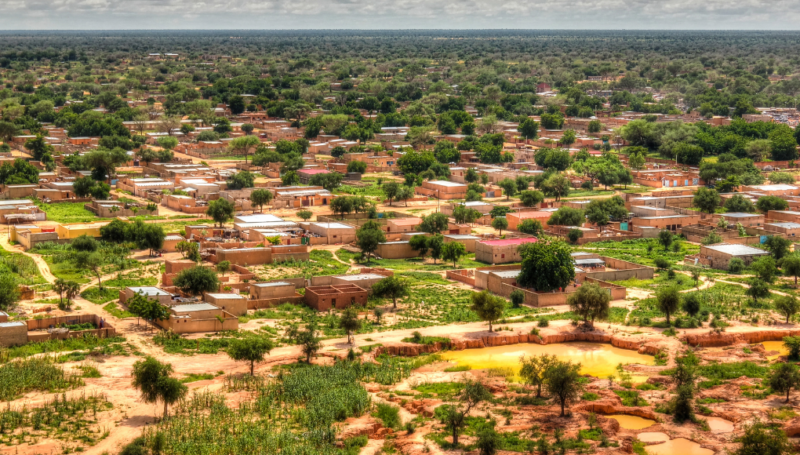
Les régions de Tillabéri et de Tahoua au Niger, situées dans la zone des trois frontières entre le Burkina Faso, le Niger et le Mali, sont gravement touchées par une...
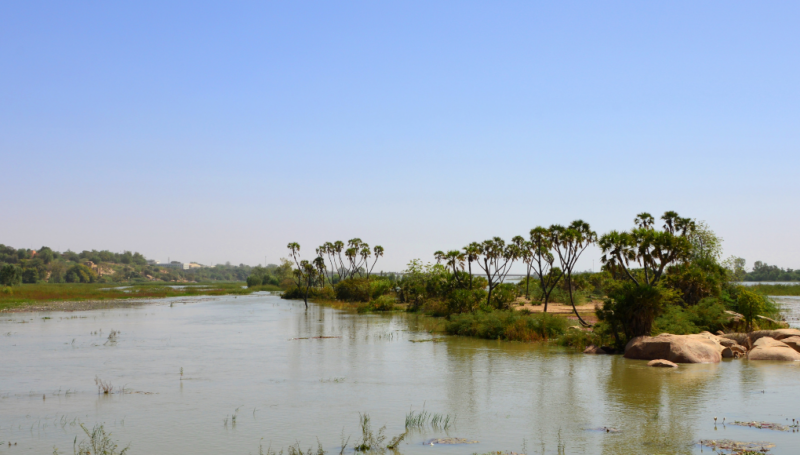
En décembre 2023, REACH a publié une fiche d’information complète éclairant le paysage humanitaire au Niger, en se concentrant particulièrement sur la redevabilité envers les populations affectées dans le but...
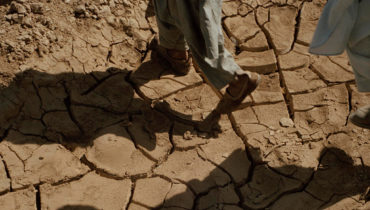
IMPACT Initiatives, notably via its REACH, AGORA, and PANDA initiatives, is increasingly committing research efforts to inform the aid community on how to tackle climate risk. The objective? To identify...


REACH Mali Suivi de la situation humanitaire dans la zone frontalière, Grille de saturation sur les localités de Daguima région de Mopti, Kain (province du Yatenga) région du Nord Burkina, Tamakoutate région de Gao (05-28 janvier 2022)
XLSX47.2K

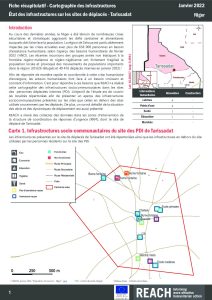
Factsheet infrastructures site de PDI de Tarissadat
PDF420.1K

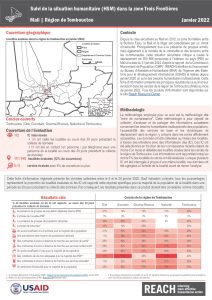
REACH Mali Suivi de la situation humanitaire dans la zone frontalière, Région de Tombouctou, Fiche d’information (5-28 janvier 2022)
PDF2.2M

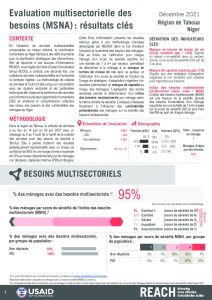
REACH_NER_MSNA_Inter-sectoral_factsheet_tahoua_december_2021
PDF2.8M

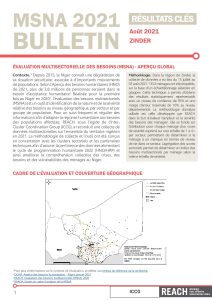
REACH_NER_Bulletin_MSNA_Zinder_Janvier2022
PDF1.8M

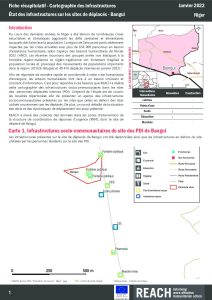
Factsheet infrastructures site de PDI de Bangui
PDF510.6K

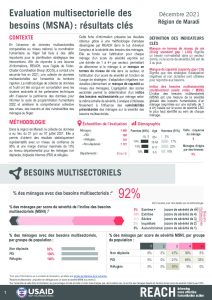
REACH_NER_MSNA_Inter-sectoral_factsheet_maradi_december_2021
PDF2.3M

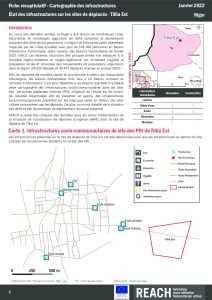
Factsheet infrastructures site de PDI de Tillia Est
PDF457.0K

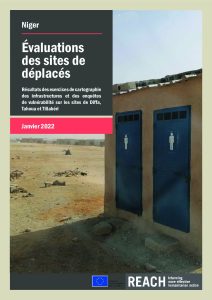
REACH_NER_RRM_Final Report_20220713
PDF1.7M

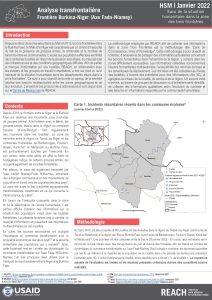
Suivi de la situation humanitaire dans la zone Trois Frontières, Analyse Transfrontalière - Burkina Faso et Niger- Jan 2022
PDF857.3K

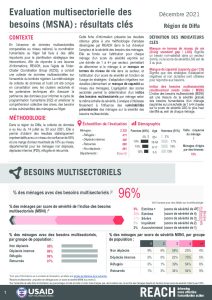
REACH_NER_MSNA_Inter-sectoral_factsheet_diffa_december_2021
PDF1.7M

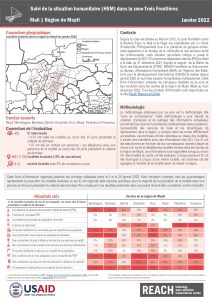
REACH Mali Suivi de la situation humanitaire dans la zone frontalière, Région de Mopti, Fiche d’information (5-28 janvier 2022)
PDF8.0M

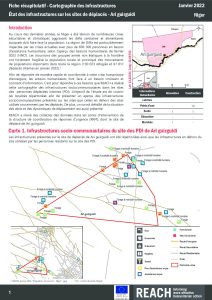
Factsheet infrastructures site de PDI de Ari Guirguidi
PDF1.0M

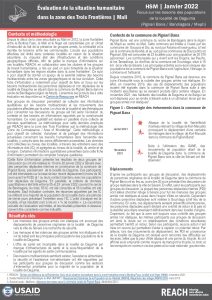
Suivi de situation humanitaire au Mali des personnes déplacées et non déplacées de la localité de Daguima (commune de Pignari Bana) dans la région de Mopti, Focus groupe de discussion (2022-01-19)
PDF780.5K

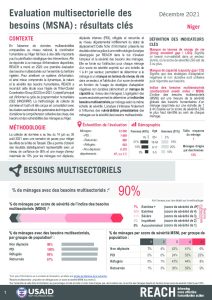
REACH_NER_MSNA_Inter-sectoral_factsheet_national_december_2021
PDF2.5M


Factsheet infrastructures site de PDI de Gotheye
PDF514.4K